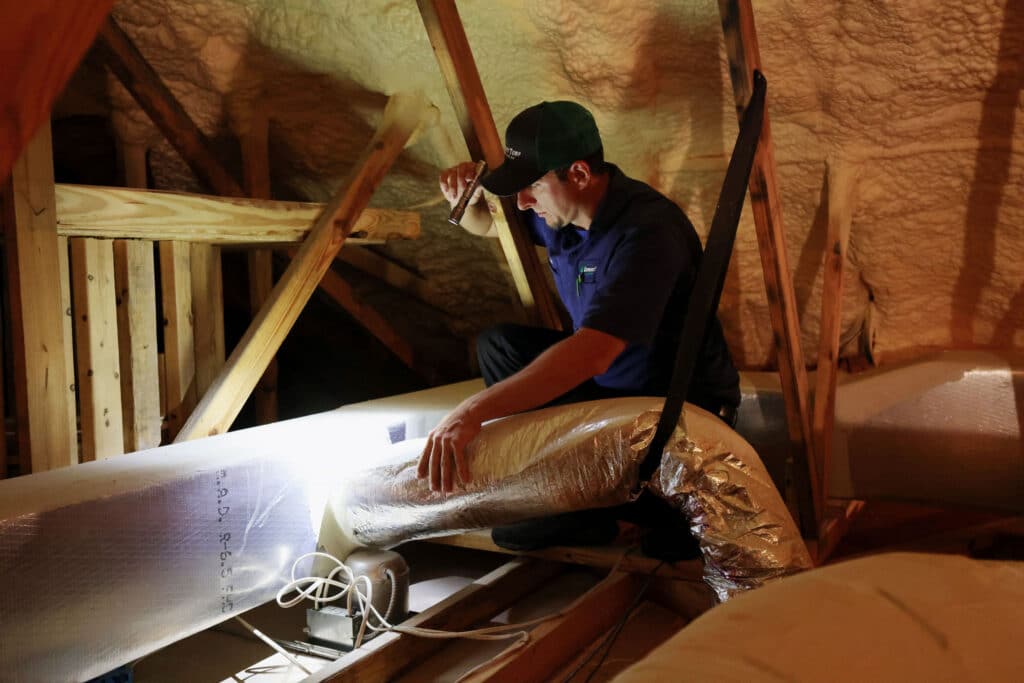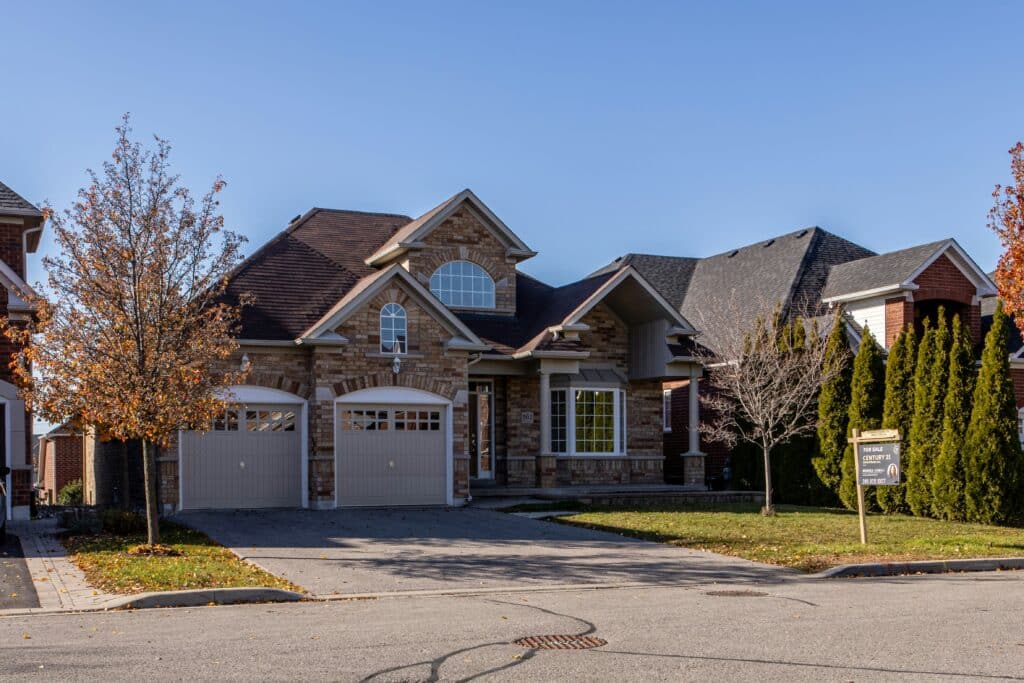If you have ever paid a summer utility bill, you likely recognize the importance of your HVAC being as energy efficient as possible. Several factors can impact your AC unit’s energy efficiency, so read on to discover these.
Energy Efficient HVAC Factors
An HVAC system relies on heating, cooling, and ventilation, using ductwork to move heated or cooled air throughout the home. The energy efficiency benefits of that HVAC system include considerable savings on utility bills and decreased energy consumption.
Air Conditioner & Heat Pump Efficiency (SEER)
So, how can you determine if you have an energy-efficient HVAC system? Well, the answer is to understand your unit’s seasonal energy-efficiency ratio (SEER) rating. If you’re wondering how to determine your unit’s SEER rating, you can check the user manual or your AC’s cabinet for the SEER rating. The higher the number, the better your SEER rating.
The SEER measurement is determined by how efficiently your AC unit converts electricity into cooling power. The Department of Energy has released a new standard for both how to calculate your system’s SEER, now named SEER2, and higher minimum ratings required. The minimums go as follows:
- For AC split systems:
- SEER minimum of 15 (14.3 SEER2) if the capacity falls below 45k BTU (1.5-3.5 Ton)
- If it has a capacity of 45k BTU (4-5 Ton) or more, then the minimum requirement is 14.5 (13.8 SEER2)
- For heat pump split systems, SEER minimum of 15 (14.3 SEER2)
- For all packaged systems, SEER minimum of 14 (13.4 SEER2)
If your rating is lower than the above requirements, you may want to consider an upgrade to save money in the coming years and remain in compliance with the new regulations.
Warning Signs of An Inefficiently Operating HVAC System
Multiple things can slow the efficiency of your HVAC system. This includes age because older systems do not perform at the level they once did. Compounding this is an owner who fails to keep a regular maintenance schedule and neglects necessary repairs.
Generally speaking, your HVAC system will show signs of no longer functioning as efficiently as it once did.
Increased Interior Humidity
Humidity is just a part of our Florida lifestyle, but if you notice that your interior environment has become increasingly humid, it could be a sign that your AC unit has been having trouble. This will make you more uncomfortable in your home, but it will also cost you more to cool your home than it should.
Higher Utility Bills
If you notice that your electric bill is higher than it normally is that could be another sign that your HVAC system is not operating as efficiently as it should be. Slight fluctuations in your bill are normal, but large jumps in what you owe are a good sign that something is amiss with your unit.
Frequent Breakdowns
If you find that your HVAC unit constantly breaks down, it may be a sign that your system is operating inefficiently. A new, upgraded system can save you money and headaches in repair costs over the years.
Rely on Us for Energy Efficiency and Comfort
When you’re ready to enjoy energy-efficient comfort in your home or business, reach out to the team at Comfort Temp. We can inspect and repair your current system to get it running perfectly for you, or we can expertly guide you into what a good upgrade would be. Keeping North Central Florida homes and businesses cool is our passion, so don’t hesitate to reach out when we can be of service to you.

